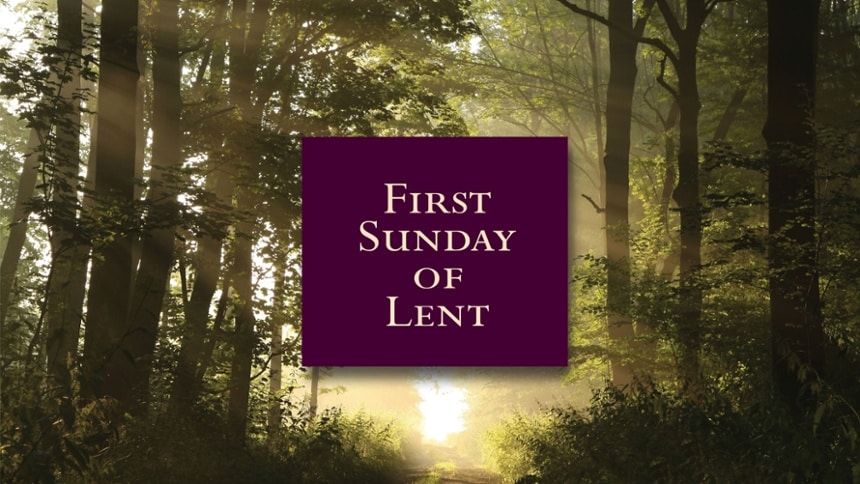First Sunday of Lent | Readings: Mark 1:12–15; Matthew 4:1–11; Luke 4:1–13
REFLECTION
In all three Lectionary cycles, the Gospel for the first Sunday of Lent is devoted to the temptation scene of Jesus in the desert from Matthew, Mark, or Luke. That seems to be the way that he experiences his forty days in the desert, so it seems like an appropriate way to start ours. This makes our chosen theme here rather clear, but as we examine it, it actually is not clear at all.
First, if Jesus is purely and simply “God,” as many Christians seem to have concluded, then how or why can God be tempted? In fact, the texts appear to make Satan stronger than Jesus in some ways. We clearly have a very different image of both Jesus and God today than Matthew, Mark, or Luke do.
Second, even if Jesus were merely a human, then what precisely is the meaning of these temptations to his humanity? That would seem to be the meaning and application for us today. In short, I see the three temptations as the primal and universal temptations that all humans must face before they dare take on any kind of power—as Jesus is about to do. They are all temptations to the misuse of power for purposes less than God’s purpose. They are sequentially the misuse of practical everyday power, the misuse of religious power, and the misuse of political power. These are the constant tragedies that keep defeating humanity. Jesus passes all three tests, and thus “the devil left him” because he could not be used for lesser purposes. If you face such demons in yourself, God can and will use you mightily. Otherwise, you will, for sure, be used!
But let me point out something we almost always fail to notice. We can only be tempted to something that is good on some level, partially good, or good for some, or just good for us and not for others. Temptations are always about “good” things, or we could not be tempted: in these cases “bread,” “Scripture,” and “kingdoms in their magnificence.” Most people’s daily ethical choices are not between total good and total evil, but between various shades of good, a partial good that is wrongly perceived as an absolute good (because of the self as the central reference point), or even evil that disguises itself as good. These are what get us into trouble.
Jesus is the master of spiritual discernment here, which is always much more subtle and particular than mere obedience to external laws. Note that Jesus quotes no moral commandments here, but only wisdom texts from Deuteronomy.
TODAY’S READING
“The Spirit drove Jesus into the wilderness, where he stayed for forty days. There he was put to the test by Satan. He was with the wild beasts, yet angels ministered to him.” —Mark 1:12–13
STARTER PRAYER
“God, help me to distinguish my wild beasts from my angels. Help me to see how I often confuse one with the other.”
¡Haga clic aquí para ver la traducción en español!








